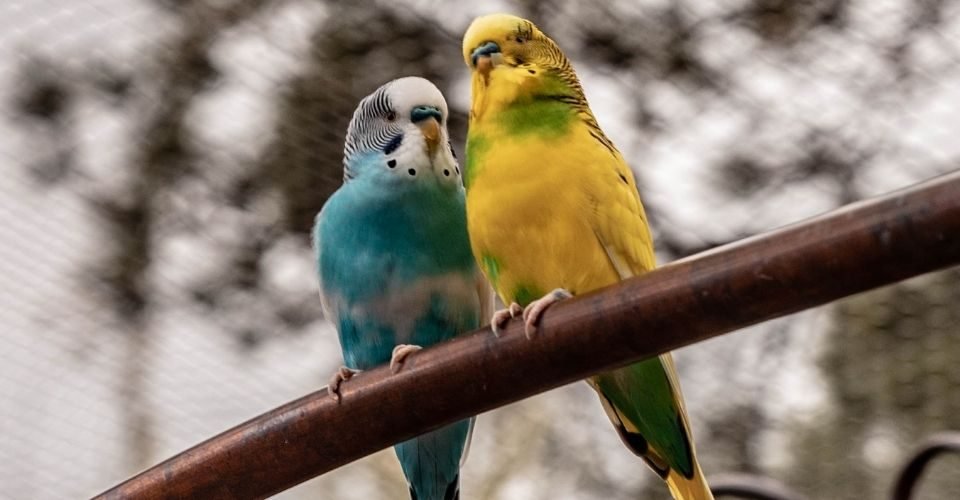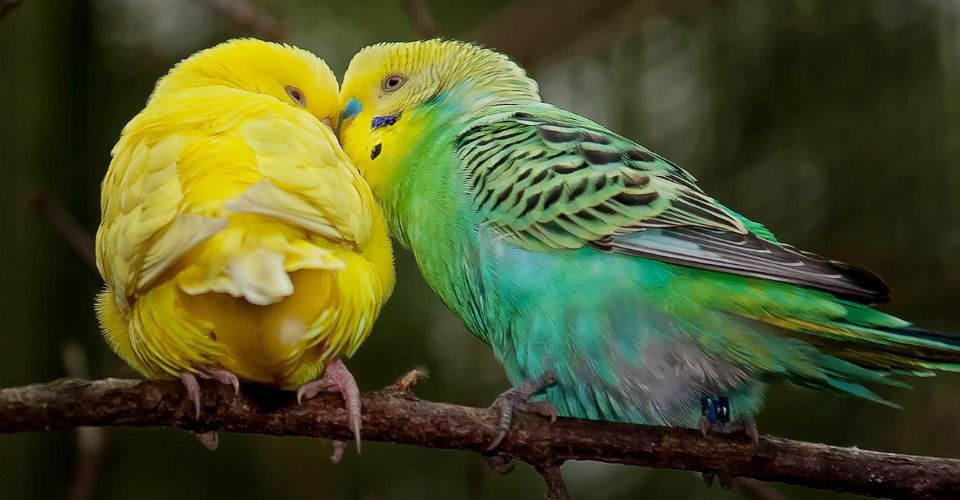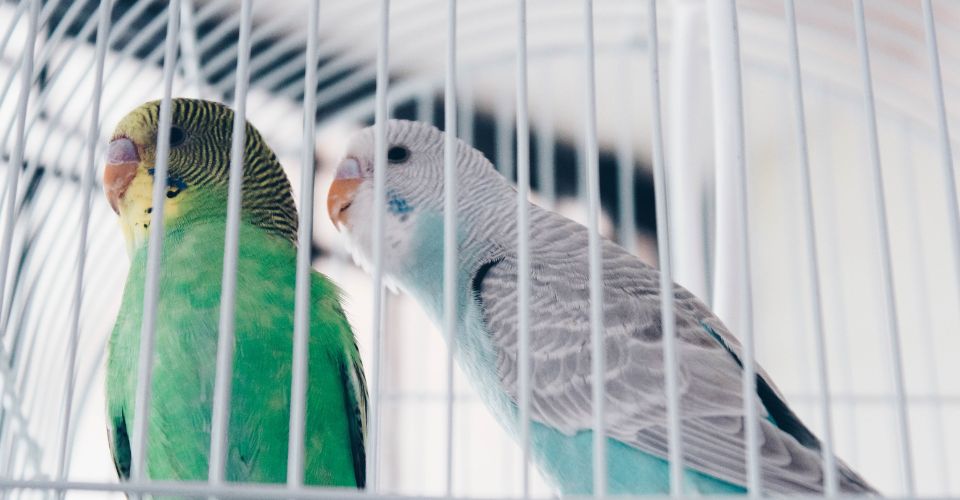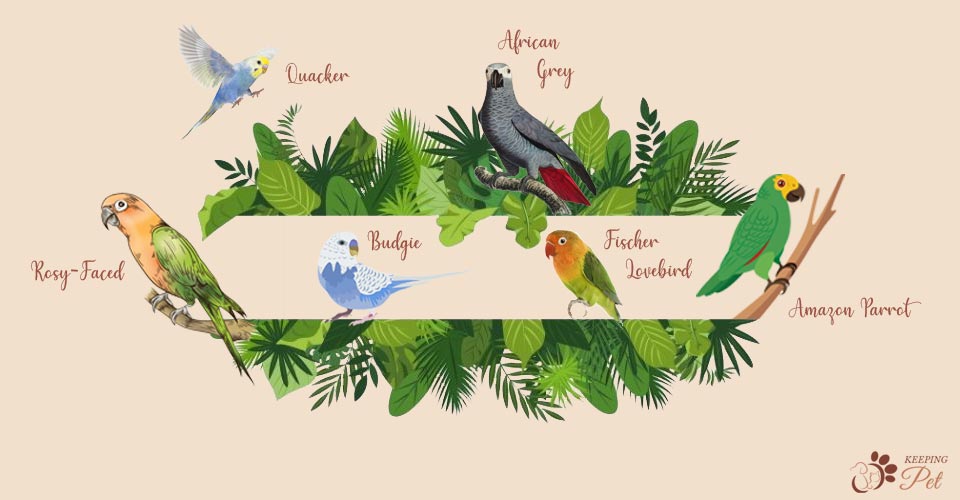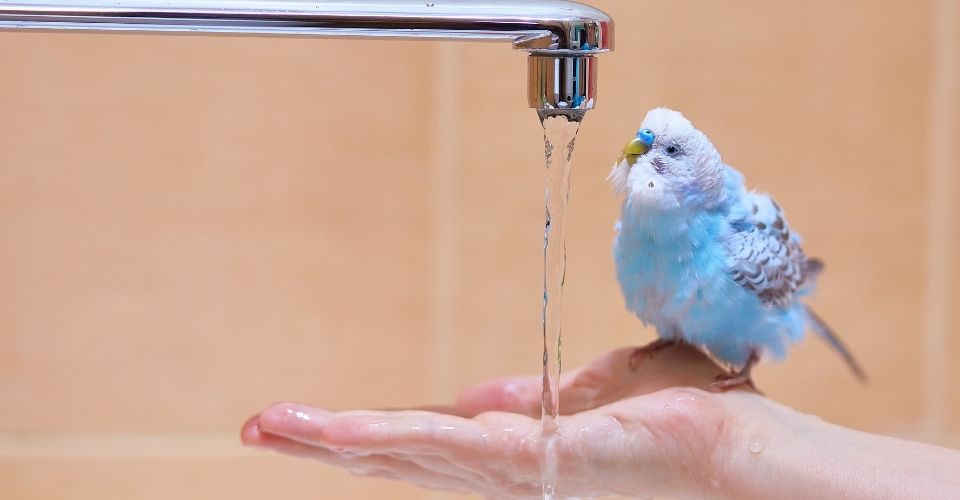Parakeet, a small species of parrots, is common pet and requires less space and less maintenance than larger birds. That makes them a wonderful pet for children, especially for people who are novice pet owners. They are adorable little creatures and fun to be around.
Pet owners’ topmost priority is always the good health of their pets, and a slight behavior change may cause them to worry a lot.
However, you may notice your pet shaking sometimes. With a lot of questions popping into your mind, the most predominant question must be about your pet’s health. Are they safe? Should you worry? And a lot more. This blog contains everything you need to know about your parakeet shaking or trembling, its causes, and how to stop it from shaking.
Reasons Why Your Parakeet is Shaking?
You may have noticed your Parakeet trembling sometimes. Shaking and trembling in birds is not uncommon, as like humans, birds also feel plenty of emotions such as stress, anxiety, happiness, excitement, or sorrow. They do not have vocal cords to convey their feelings, so they visually show or give cues about how they feel.
Shaking in your bird pet can oftentimes be usual and rings no alarming bell. Despite that, you should always look for other symptoms to make sure your pet is completely fine and healthy. Several reasons cause shaking in your parakeet, such as hot or cold temperature, anxiety, stress, or simply because they are happy. But sometimes, it also indicates underlying disease or any ill conditions that require medical treatment immediately.
We strongly recommend visiting a veterinarian if you notice any slight change in your pet’s behavior to avoid complications. Here we will discuss the common reasons that can cause your parakeet to shake or tremble.
The Temperature Is Too Cold
Like humans, birds also feel cold when the weather is cold. Budgies usually prefer a temperature between 65 – 80 Fahrenheit (18 to 26 degrees Celsius). If the temperature is lower than this, it means that your budgie is feeling cold.
To keep their body muscles warm, they tend to shiver. The chest muscles contracts involuntarily to keep them warm. A cold bath can also cause them to shiver, but it is temporary and stops once your pet warms up.
The Temperature Is Too Hot
As they prefer a temperature between 18 – 26 degrees Celsius, a temperature higher than that can be too hot for your parakeet. Parakeets also shiver when they are hot. They move their wings to cool down their body. They lift their feathers above their bodies and shake them to create a breeze that helps them cool off.
Read: Do Parakeets like Music?
Your Parakeet May Be Feeling Stressed, Anxious, or Fearful
Parakeets are not a big fan of change. A new cage, new owner, new house, or strangers can cause stress in these feathered birds that result in shaking. Just like humans, birds also get frustrated. It’s hard to believe, but yes, birds also argue. If two budgies are in the same cage, a simple fight or an argument can cause them to tremble or shake.
Loud music, dog barking, or even car horn can make them scared that cause them to shiver due to fear.
Your Parakeet Is Allergic to Certain Foods
Parakeets are allergic to some foods, plants, chemicals, or smells. Some foods are toxic to budgies, including avocado, mushrooms, tomato leaves, some nuts, or fruits. It is necessary to feed them in proportional quantity. The toxic food can make them sick that cause them to tremble. They are also allergic to some plants, cleaning chemicals, fumes, or even metals such as zinc, copper, or brass.
They may shake as a result of consuming any of the above foods.
Your Parakeet Is Preening
It is the process of self-grooming, which includes smoothing out feathers and waterproofing the feathers by distributing preen oil through them that helps birds look good and improves flying conditions. They tend to ruffle their feathers while preening that appears as they are trembling or shaking.
Once your pet bird stops preening, it will stop shaking, and there is nothing to worry about.
Your Parakeet Is Happy
You must have observed how cats or dogs get excited when their owner comes home after a long day. They drool over their owners to visually show their love, pleasure, and excitement. Just like other pets, parakeets may also get excited when you come home after a long day, causing them to shake or chirp loudly.
A food treat can also make them happy and cause them to flap their wings due to excitement that can be mistaken as shaking
Your Parakeet Is Injured
It may be possible that your parakeet has an internal injury caused by a hit during a flight, or maybe it fell off from its perch. The pain caused by the injury can result in shivering or trembling.
Your Parakeet Is Preparing to Fly
When you are going to a singing competition, you stretch your vocal cords, or before going in a marathon, you warm up your body. Just like that, some parakeets become animated when they are preparing to fly.
Along with trembling, you may notice that your budgie is alternating its feet on the perch and quivering up and down before taking off.
Your Parakeet Is ill
Shaking can also indicate that your pet has an underlying disease or it is sick. Budgies cannot vocally inform humans about their sickness. The owner must pick up on cues such as shaking, trembling, irregular pattern of breathing, lack of appetite, or glassy eyes.
Consult your veterinarian, and they will have a more final and authoritative opinion on what is the underlying cause.
Your Parakeet has an Improper Diet
Malnourishment can be a huge factor in parakeets’ shaking. A proper and healthy diet is necessary for good health. If your parakeet is not being fed anything healthy, it may tremble due to weakness
How to Cure a Shaking Parakeet?
Whenever you notice a different behavior in your pet, that indicates that something is wrong with it, and it is better to understand and solve your pet’s problem as soon as possible.
Shaking parakeets is quite normal, but it is crucial to understand the reasons (that were discussed above) and try to cure them. Some ways to help your shaking parakeet are discussed below:
- If the parakeet is shaking due to cold weather, shift your pet to a warmer environment or cover its cage with a blanket.
- Warm weather can also cause shaking in your budgie and can be healed by placing a fan near its cage or simply shifting it to a room with an air conditioner
- If there is loud music or any noise in your surroundings, move its cage to a quiet place.
- A parakeet may take time to adapt to the new environment and tremble, but it is temporary and fades away once it settles down.
- Finding your pet allergy on your own can be difficult. It is better to consult a veterinarian before changing diets or shifting your pet to a new environment
- A healthy diet is always necessary. It protects our pets from many diseases and makes them healthy. Best food for parakeets includes pellets, broccoli florets, chopped carrots, sweet potatoes, and other veggies. Parakeets also enjoy eating fresh fruits.
- The shaking in your budgie due to the above reasons will be temporary. If it continues to shake, your pet may be suffering from an injury that you cannot see from the outside but may be causing it pain. It also indicates that your bird may have a disease or illness that needs medical attention immediately.
Read: How do Parakeets Sleep?
How to Keep your Parakeet Healthy?
Parakeets consume a variety of foods such as fruits, vegetables, nuts, and pellets. Providing them a balanced and nutritious diet is one way to keep them healthy. A hygienic environment is also necessary to maintain good health. They need adequate space so they don’t feel trapped or crowded in their cage.
Parakeets are social birds and require a company to avoid stress or anxiousness. If you are away from home most of the day, keep another bird in the cage so your budgie won’t feel lonely or scared.
It is important to know the symptoms of illness or any disease in your pet and take precautionary measures to avoid future complications. You need to keep track of your pet’s behavior, and any slight change may indicate that something is wrong.
Final Words
Parakeets are delicate and entertaining pets. They need love, care, and attention. Like other pets, they get immensely attached to their owners and hate being alone in their cage. Try to place its cage near your room or a crowded area of the house, but also avoid loud places as it can make your budgie anxious and stressed.
Your budgie may shake or tremble due to several reasons, including weather conditions, stress, fear, malnourishment, or simply being happy. However, shivering due to these reasons is temporary and can be cured, but if your pet still seems to shake or tremble, you should immediately make an appointment with your veterinarian.
Read: What Do Parakeets Eat?

